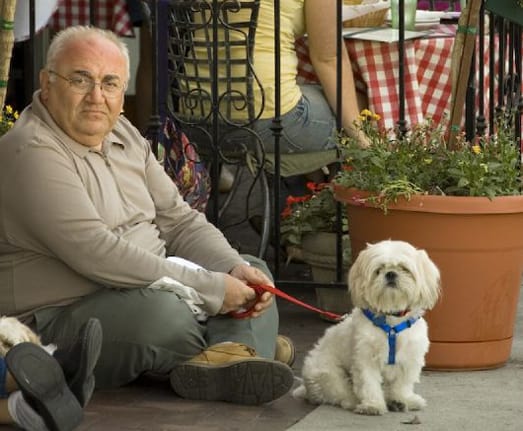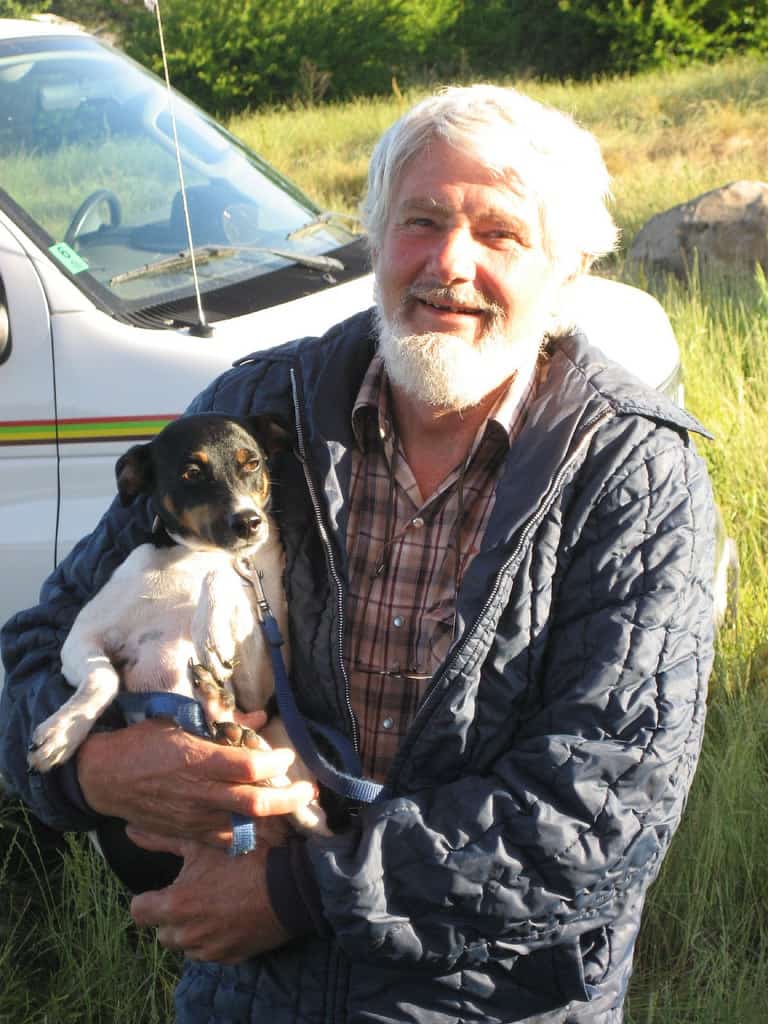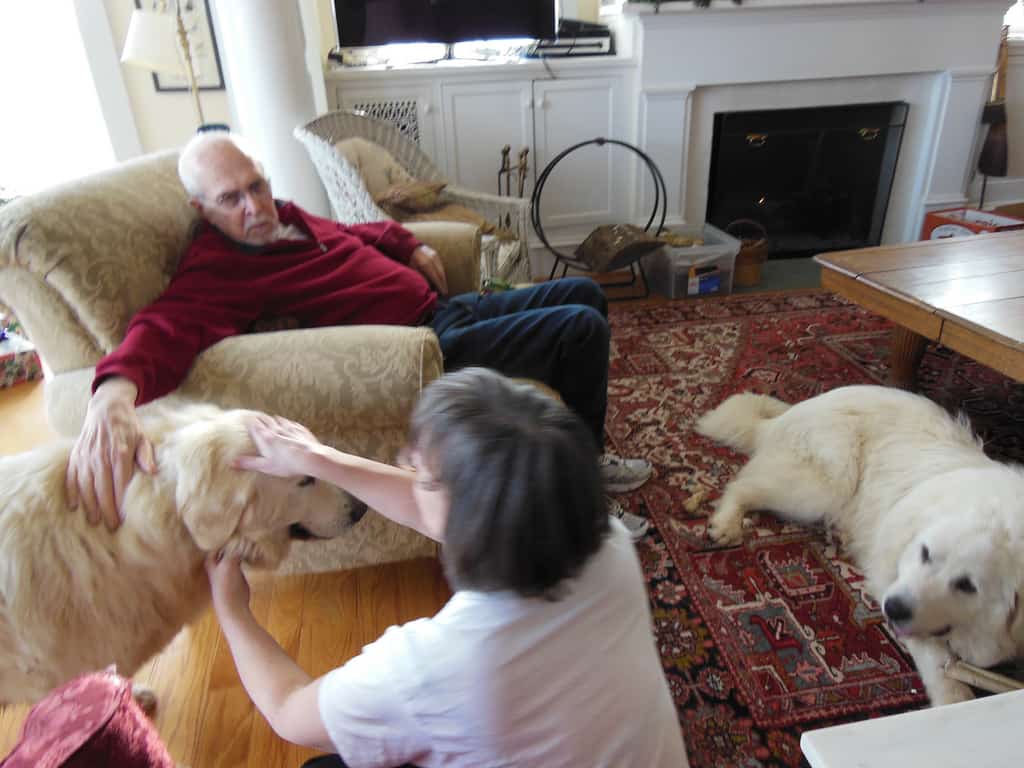Dogs
Dog Companion for the Elderly
There is much research to suggest that pet therapy is more powerful than most medicines, not only for people who have to deal with stressful events in their lives or in poor health, but also for those seeking companionship after the loss of a loved one. A dog companion can help with building self-esteem, mental alertness, and provide a relationship that can reduce loneliness. We are social beings that want to share our lives with other people and have had a long association with dogs as pets.
The Benefits of a Dog Companion
While many older people who have lost their lifelong partner do not want to find a new partner, a pet companion can be beneficial by providing them with something to care for and love. If an elderly person lives at home on their own, then a dog can provide added security as well as fulfil the needs of mental and physical stimulation.
Many older people enjoy the responsibility that comes from dog ownership. It can provide a reason to get up each day and take them out for walks encourages daily exercise, which is still important as we get older. Owning a dog can help to lower blood pressure, reduce stress and depression, and reduce cholesterol. Thinking about caring for a dog includes providing its daily food and water, walking and grooming your pet. Talking to a dog can help with improving a senior’s mental health as well.
Owning a dog can attract attention from other people. An elderly person will be able to interact with others while out walking their pet. Dogs are social animals and love attention as well. While out walking a dog, there will be others doing the same thing, and it will be easy to strike up conversations about a pet and what he or she is doing; therefore, encouraging other human interactions. These can all help to reduce loneliness and create new friendships.
Avoid a Dog Companion as a Gift
Being alone can easily lead to depression, so having a dog can help to alleviate the onset of the condition. However, it is worthy of not just arriving to an elderly relatives house with a dog as a gift. It is important that the intended pet owner is given opportunity to make the choice themselves.
Choosing A Dog Companion
Choosing a dog is very personal and best undertaken when they actively want to have a pet as a companion. When considering a dog as a pet for an elderly person, it is important to make some considerations, such as any mental or physical health restrictions. Take time to consider whether the size and breed of dog is suitable. A large canine may be too strong and require lots of exercise that may not be practical. Care should be taken to consider that elderly people are more prone to accidents and may easily fall or trip if pulled along by a strong dog. Similarly, a young puppy may be too energetic and difficult to manage depending on how mobile the elderly owner is regarding their physical health. There are many slightly older pets that are already house trained from local rescue centres that may be suitable. Take your elderly relative with you so that they can see the dogs and decide on one that is suitable for their home and garden space. By adopting an older dog, you are giving a pet a chance of a loving home. Make sure that your senior relative can handle the chosen pet easily. Your elderly relative will be able to spend time with the dog in the shelter or with the owners before deciding on taking him or her home. Try not to let your emotions get carried away. Just because a Great Dane looks at you lovingly does not mean it will be an ideal pet. Think about the energy requirements of your pet. The chosen pet needs to match the energy levels of the owner so that his or her physical needs are met. Smaller breeds do not necessarily mean that your pet does not have high demands on physical needs. It is best to handle a few different types of dogs to see which ones suit you, and remember that each individual pet will be different in temperament and have his or her own needs.
Remember that crossbreeds may have unknown parentage and a cute puppy may turn into a large dog. If you go with a pedigree dog, you will be more assured from a good breeder as to the temperament and nature of the puppy. If an elderly person wants a puppy, then they should see the parent(s). Puppies will need housetrained using dog kennels and will be more mischievous than adolescent dogs. They may chew and cause damage around the home. All of these factors need to be taken into consideration.
Think About the Future of the Dog Companion
Many elderly people concern themselves about how they will care for their dog as they become older and perhaps less able to cope. Remember that our physical and mental abilities change as we age and can change quickly. This may occur suddenly if they fall ill. As their pet ages, they may also concern themselves about being able to manage the complexities of dealing with a sick pet. Fortunately, there are services that will care for pets should their owner be unexpectedly taken into hospital or a family member may be able to take temporary care of the dog until the owner returns home. If the pet falls ill, you can usually arrange for a home visit by a veterinary surgeon.
It is important to think about what will happen to the dog when the person is no longer healthy enough to look after him or her or the person goes into a nursing home or hospital care permanently. A dog can live for up to 10 years or more. Think about the long-term care and needs for the dog as well. Could the pet stay with a family member if prepared to do so? If not, then will you be able to rehome him or her.










Pingback: Make Christmas More Fun for You and Your Pet | Coops & CagesCoops And Cages™